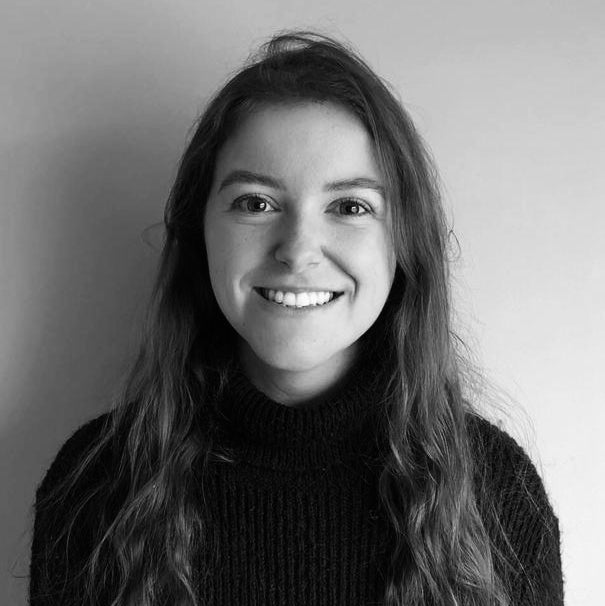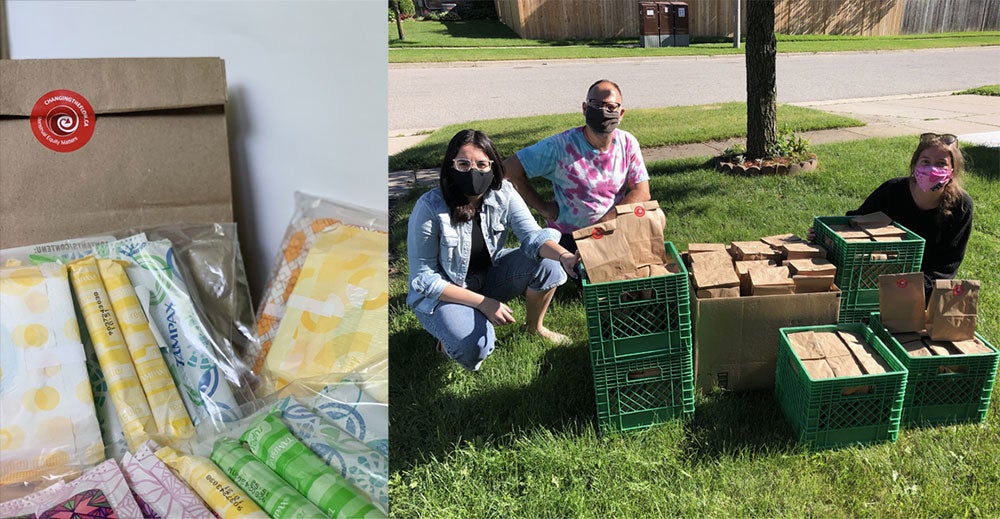Kate Elliott
MA graduate | Public Issues Anthropology

Public Issues Anthropology MA graduate Kate Elliott has made her mark at the University in a number of impressive ways, especially for her activism around period poverty and period education.
Her graduate research centres on the health of women experiencing homelessness, and she specifically looks at how structural violence impacts their lived experiences. She shows how the healthcare system from a mental and physical health perspective needs to do a better job to address the needs of this population, empower them and serve them.
When Elliott was choosing her graduate program, she found that many of her research interests and professional goals seemed to align with the Public Issues Anthropology MA program. “I was excited about the emphasis on ‘public issues’ in the program because I wanted to utilize the important insight that social sciences can have on societal issues,” she says. “I’m fortunate with my research that I have been able to help tackle some of these societal issues while supporting some of our most vulnerable populations, namely homeless women.”
During her time as a master’s student, she also kickstarted her social enterprise with business partner Kevin Hiebert, known as Changing The Flow. Through this, Elliott has been able to advise organizations on how to incorporate free period products in their washrooms to ensure anyone who menstruates can access these hygiene products.
A key message of this enterprise is that without safe and affordable access to menstrual products, the health and dignity of those who menstruate is put at risk. A large part of her work revolves around education and awareness regarding menstrual equity and the destigmatization of periods.
The pandemic has inadvertently provided cofounders Kate and Kevin with an opportunity to fine tune the overall mission of Changing The Flow. “Menstrual equity, and the needs of people who menstruate, do not stop for anything, including a pandemic, so this work cannot either,” she says. “We now have the award-winning Period Game—a board game that teaches about menstruation—for both sale and rental in Canada via the website.” Elliott’s efforts are focussed on providing local organizations in the Waterloo Region with free period products for those that need them. Changing The Flow has launched a fundraiser titled #PeriodPreparedWR, a program that gets period products into the hands of students in schools across Waterloo Region that need them. Elliott hopes to scale this initiative to support other organizations in neighbouring communities in the future.

Kate Elliott and other Changing the Flow volunteers put together period product kits to deliver to students in school throughout the Waterloo Region.
Elliott also co-founded the local chapter of the Period Purse with Kevin Hiebert. The Period Purse provides those in marginalized communities who menstruate with access to free menstrual products in an effort to help achieve menstrual equity. This program also aims to diminish period stigma by educating the public.
This spring, Elliott was the third place winner of the Graduate Student Startup Fund from Concept for her work with Changing The Flow. The grant allows her to further establish Changing The Flow as a leader in championing menstrual equity. Her work continues to involve providing consultation services on menstrual education and equity, and in the future she plans to conduct a data collection on menstrual equity to other populations as well.